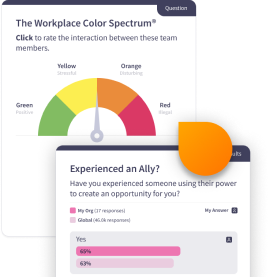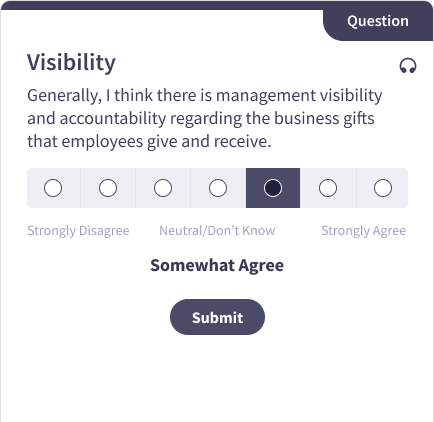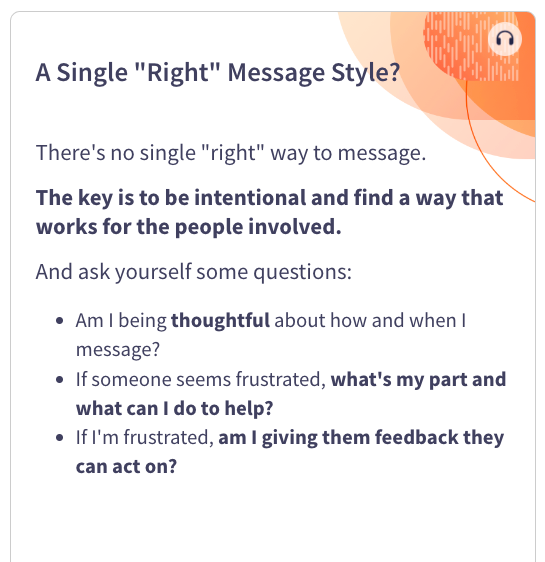
Evolving Our Words to Create Safe Spaces
Idioms, colloquialisms, and metaphors play a significant role in our daily communication. Though, they often carry undertones or histories that can cause harm or alienate certain employees. To foster inclusivity, equity, and productivity in the workplace, it is crucial to educate employees about identifying exclusionary or subtly offensive language. By doing so, we can create a more welcoming and harmonious environment.
Microlesson Description
This microlesson provides context for the importance of using inclusive language. Words and phrases with problematic origins have made their way into our vocabulary and some have become common industry terms. It's our responsibility to retire and replace these terms and phrases.
Inclusive Language Creates Belonging is one of three microlessons in our new Inclusive Language series. It partners well with the microlessons Facing Criticism, and The Principles of Inclusive Language. The lessons are also available as a full course, Inclusive Language Training, which contains an additional lesson.
- Problematic terms are deeply embedded in our language
- It's up to us to monitor and evolve our language
- Inclusive language is respectful of different identities and characteristics
- Inclusive language creates an environment where everyone feels safe, supported, and accepted
Microlesson Features
- Employee sentiment pulsing questions that provide leaders with insights into their workforce's core cultural competencies
- Emtrain's Expert Answers tool, enabling employeees to submit anonymous questions about sensitive issues.
- Rich, contemporary video scences illustrating key concepts through realistic scenarios
- A data driven, skill-based approach to eLearning that establishes a shared language for employees.

Related Resources
Related Trainings
Frequently Asked Questions
Below are answers to common questions that employees and managers have about this topic. These FAQs provide a preview of what you’ll learn in this microlesson and why it matters.



